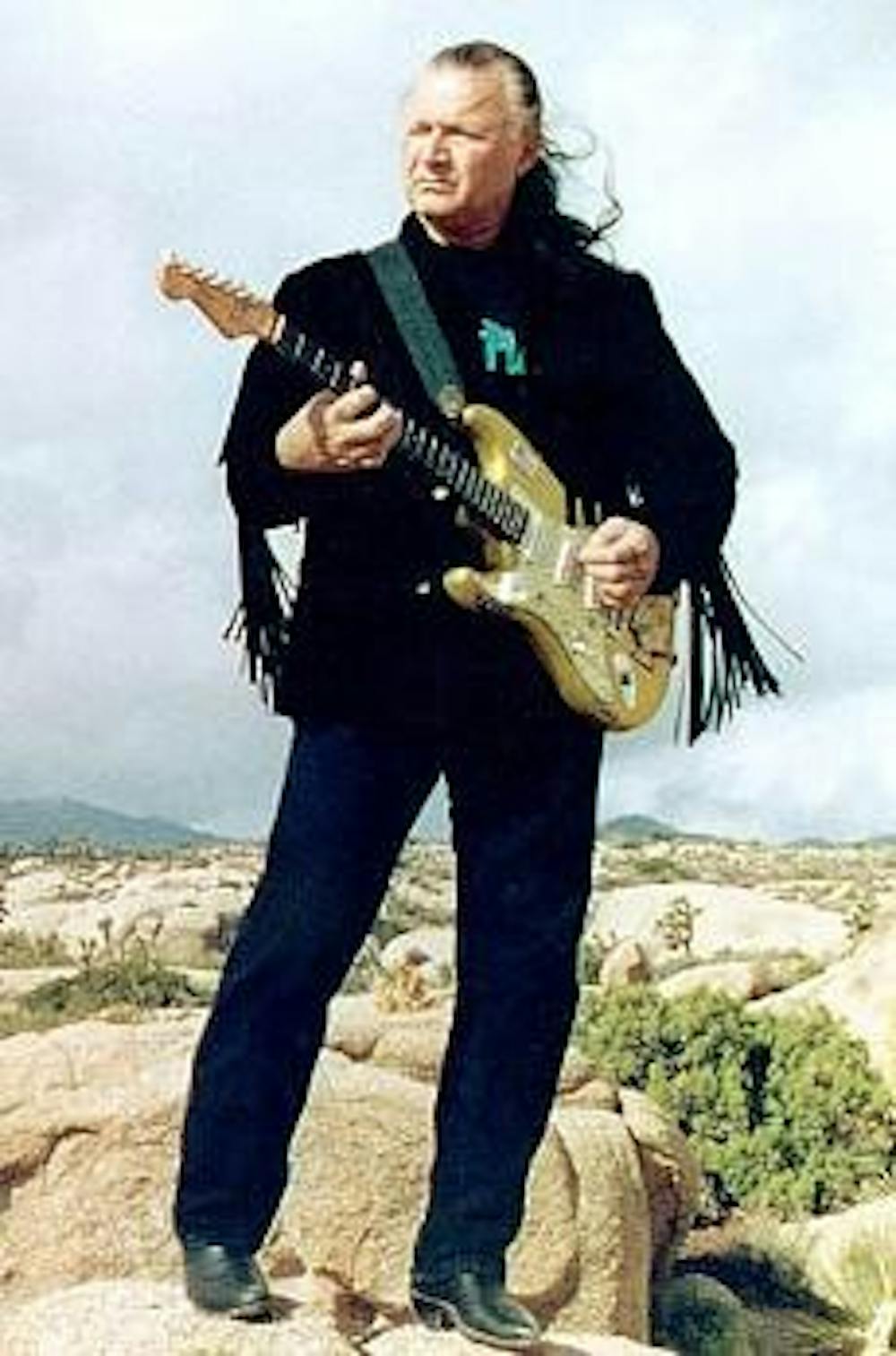Before Jimi Hendrix and Jimmy Page, there was delta-bred rhythm and blues. And before John Travolta yakked about Big Macs with Samuel L. Jackson and twisted with Uma Thurman, there was surf guitar and rockabilly fusion. These guitarists have influenced everyone from The Cramps to Quentin Tarantino, and while Hendrix and Eric Clapton may reign supreme on others' lists, neither would have a leg or amp to stand on without the following influential trailblazers.
1. MUDDY WATERS, "MANNISH BOY (I'M A MAN) Muddy Waters' long-standing reign as the pre-eminent Mississippi delta blues guitarist continues to be legitimized by his legacy. More and more, artists are citing Waters as an influence, and critics are acknowledging his importance in American country blues and rock 'n' roll - Rolling Stone magazine ranked Waters No. 17 on its list of 100 Greatest Artists of All Time. Waters was also instrumental in getting Chuck Berry, who frequently covered Waters' songs, a record deal. Waters' emphatically plucked and deliberately distilled style of guitar-playing compliments his gravelly gospel and world-weary vocals, making his music a good place for those interested in familiarizing themselves with the roots of rock 'n' roll to start.
2. BO DIDDLEY, "WHO DO YOU LOVE?" Bo Diddley is often regarded as the bridge from blues to rock 'n' roll, dishing out pithy blues chord progressions that had been stewed in Mississippi country colloquialism. One of the first "cross-over" artists from black to white audiences, Diddley was the first black man to appear on the popular '50s variety show "The Ed Sullivan Show." Diddley's simple, catchy riffs and rhythms have been emulated by such varied musicians as the Strangeloves' "I Want Candy" and the Stooges' "1969," borrowing beats from his eponymous song "Bo Diddley." Diddley's tunes have also been covered by the Rolling Stones, and The White Stripes most certainly owe their resurrection of laconic, twangy blues-garage fusion to the seeds planted by Diddley.
3. DICK DALE, "MISIRLOU" Before Quentin Tarantino incorporated it into the opening credits of "Pulp Fiction" and the Black Eyed Peas bastardized its riffs in "Pump It," Dick Dale's 1962 hit "Misirlou" solidified his still-undisputed status as the "King of Surf Guitar." Dale, an East Coaster with Lebanese and European roots, is said to be the first guitarist to incorporate manic, exotic chord progressions into his largely instrumental compositions, a feat made all the more impressive since the left-handed guitarist played an upside-down right-handed Fender Stratocaster guitar. In addition to creatively compensating with his guitar, Dale was the first guitarist to request and use a custom-built amp with increased volume, an endeavor that earned him the adulatory title of the "Father of Heavy Metal" from Guitar Player magazine.
4. JOHNNY "GUITAR" WATSON, "GANGSTER OF LOVE" After years of work playing prior to its release, 1957's "Gangster of Love" won Johnny "Guitar" Watson little acclaim. It wasn't until years later that more fans began to appreciate his faster-paced, thoughtfully imperfect plucking, which defied the standards Muddy Waters set for blues guitarists. As the '60s began to melt into the '70s, Watson took his brand of rhythm and blues and mashed it together with soul and bravado and made funk. Sly Stone, Stevie Ray Vaughn and Frank Zappa have all praised and acknowledged Watson as an idol and influence, and his work has been sampled by rap icons Snoop Dogg, Dr. Dre and Jay-Z.
5. LINK WRAY, "RUMBLE" With his 1958 hit "Rumble," Link Wray was the first guitarist to use power chords and heavily fuzzed-out reverb in his short, instrumental songs. The song's heavy blues lilt and high-noon, Western shoot-out twanging strum evoke every sense of eminent evil and bad-assitude that its title suggests. In fact, most of Wray's music smacks of swagger and tongue-in-cheek, wry humor - qualities that made Wray a progenitor and heavy influence of psychobilly and a band like The Cramps. Like that of Dick Dale, Wray's early work still receives much attention and admiration - Tarantino also used "Rumble" in "Pulp Fiction" as the sound track to Uma Thurman and John Travolta's dinner date and twist-off. Among his many fans and followers are Neil Young and Bob Dylan.





